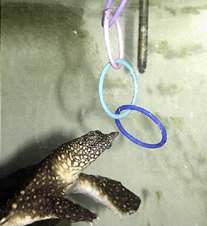We should all be aware of the feminisation of the veterinary profession, the existing gender pay gap and the disproportionate gender representation in leadership roles. Aside from the fact that discrimination is morally wrong, there are also socioeconomic consequences, let alone the risk a feminising profession faces in securing retention and progression of female talent to secure strong leadership in the future. This is not a veterinary problem, or a UK problem, but a systemic global one. It’s simply daft to ignore.
Katja Iversen, President of Women Deliver, said investing in women created a ripple effect that also buoyed families, communities, countries and economies. “We have dug deep into the evidence and it really shows that a gender-equal world is healthier, wealthier, more productive and more peaceful,” she said. “Gender equality is also good for men and boys. It’s not women against men, girls against boys. It really is a win-win.”
Globally, women are demonstrating they can build businesses out of very little capital and create networks to maximise resources. This is alongside continuing to shoulder disproportionate care-taking responsibilities, both in the family and the community. In many circumstances, women succeed in spite of laws, policies, social norms and institutions holding them back.
Employed women earn, on average, 23 percent less than men worldwide. Within the veterinary profession, salary surveys consistently show a gender pay gap across the board, including veterinary nurses, part-time and full-time employed vets and partners. The difference is most staggering at the top. CM Research reported the average female partner earning 36 percent less than a male counterpart in a 2017 survey. Female veterinary nurses also earn less, with average salaries almost £3,000 less than male nurses (equivalent to 13 percent). The SPVS salary survey 2017 reported a 19 percent median hourly rate of pay gap for female vets.
A 2015 study by McKinsey Global Institute showed fully closing gender pay gaps in the workplace could add 26 percent to GDP, totalling up to $28 trillion globally. Research also shows that women typically reinvest more of their income into their children than men do, which in turn benefits the household and society.
Women typically shoulder three times more unpaid care work than men. Unpaid women’s labour in the home and caring duties add up to about $10 trillion and should be recognised for the massive socioeconomic contribution.
Combining this stark inequality in unpaid work alongside the gender pay gap in paid work, women’s economic empowerment is hampered from both sides. The flow of power often follows money, and a knock-on effect is reduced representation politically and in leadership roles.
How do we solve gender inequality and the gender pay gap?
- Raise awareness – acknowledgement that this is an issue is the first step to conscious redressing of the balance
- Cultivate leadership – gender inequalities and biases can only be redressed when women are represented as decision makers and leaders. Increased female representation in the public and private sector is a pre-requisite for developing inclusive and gender-equitable policies
- Invest in women’s networks and organisations – women’s groups enable sharing of resources, skills building, mentoring, role modelling and cooperative learning. Building a community provides support to elevate women to positions of leadership, catalyse action and inspire cultural change
- Improve salary transparency – if we move away from our cultural norm of keeping our finances cloaked, we’ll find it much easier to see where gender pay gaps exist and move towards parity based on more objective criteria
- Measure and report on progress to receive gender equality – this is one of the seven principles outlined in the United Nations Global Compact “Equality Means Business” Empowerment Principles. Business leaders are encouraged to sign up, joining over 2,000 others committed to seeing business thrive through equality
Women get a raw deal and it’s bad for business and the economy, let alone the women behind the stats! We all have a part to play in creating a culture of gender parity in pay and opportunity. Culture takes time to change, and starts with us as individuals. By creating and joining support networks, opening the discussion to address unconscious bias and increase transparency, and having a zero-tolerance approach to the perpetuation of engendered language and practices, change will happen. To ensure a bright future for our profession – and the wider society and economy – it has to.











